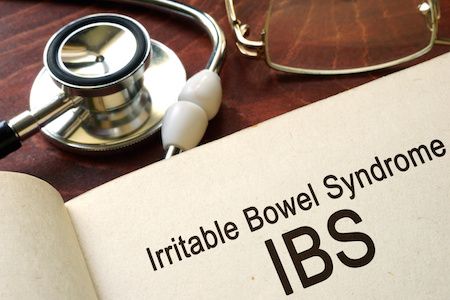Article
Promising Developments in Fecal Microbiota Transplantation
Author(s):
Researchers have made several impressive advances in gastrointestinal medicine in recent years, including the use of fecal microbiota transplantation (FMT) to treat recurrent Clostridium difficile infection. Following the success of that approach, researchers have been evaluating FMT for the treatment of other conditions, with one team recently conducting the first randomized controlled trial of FMT to treat inflammatory bowel disease (IBD).

Researchers have made several impressive advances in gastrointestinal medicine in recent years, including the use of fecal microbiota transplantation (FMT) to treat recurrent Clostridium difficile infection. Following the success of that approach, researchers have been evaluating FMT for the treatment of other conditions, with one team recently conducting the first randomized controlled trial of FMT to treat inflammatory bowel disease (IBD).
Experts suggest that FMT, a procedure that involves transplanting microbes from one human gut to another using fecal matter, could provide the cure for several gastrointestinal diseases, which underscores the importance of the microbiome.
Led by Paul Moayyedi, MBChB, PhD, MPH, acting director of the Farncombe Family Digestive Health Research Institute, and director of the Division of Gastroenterology at McMaster University, in Hamilton, Ontario, Canada, researchers conducted a study in which 27 patients with mild to moderate ulcerative colitis (UC) received an FMT enema, and 26 patients received a placebo enema. Participants were observed once weekly for 6 weeks.
Compared with placebo transplants, FMT did not provide overt symptom alleviation for UC, but researchers did observe the possibility of FMT being more effective if controlled for longer treatment time.
According to course directors Stacy A. Kahn, MD, and David T. Rubin, MD, the 2014 James W. Freston Conference hosted by the American Gastroenterological Association, addressed several issues surrounding translational studies of FMT, including its safety in the clinical setting, how FMT impacts the treatment of IBD, treatment for Clostridium difficile (C. difficile), and if FMT could likely remedy more predominant diseases such as diabetes and obesity.
FMT has proven its efficacy with recurring C. difficile treatment. Last year, a team of Danish and Finnish doctors reported findings from clinical trials in which FMT was 94% effective against C. difficile. Findings show some species from a healthy gut’s transplant will quickly grow to defeat the pathogen, returning the patient’s intestines to their healthy state.
Furthermore, according to data presented at the 2014 AGA James W. Freston Conference, 70% of subjects who received FMT for refractory irritable bowel syndrome (IBS) experienced improved symptoms. Patients reported decreased abdominal pain (72%), bowel habit (69%), dyspepsia (67%), bloating (50%), and flatus (42%).
A recent study discussed the effort to mitigate liability concerns for invasive delivery and donor complexity with Seres Health, Inc.’s newly developed orally delivered community of microbes, SER — 109. The pill, filled with bacterial spores, works to swiftly restore the microbial imbalance caused by chronic antibiotic treatment for C. difficile. Clinical trials at the Massachusetts General Hospital, Mayo Clinic, and the Miriam Hospital in Providence tested the safety of these pills with astounding results — the overall cure rate was 100%.
Alex Khoruts, MD, leader in fecal transplantation, remarked that the study “looks very promising.” While he did point out industrial production should take extra precaution to ensure the factory stocks don’t become contaminated by strains of bacteria that could harm patients, the potential replacement of FMT could alleviate the “yuck” factor associated with the procedures.




